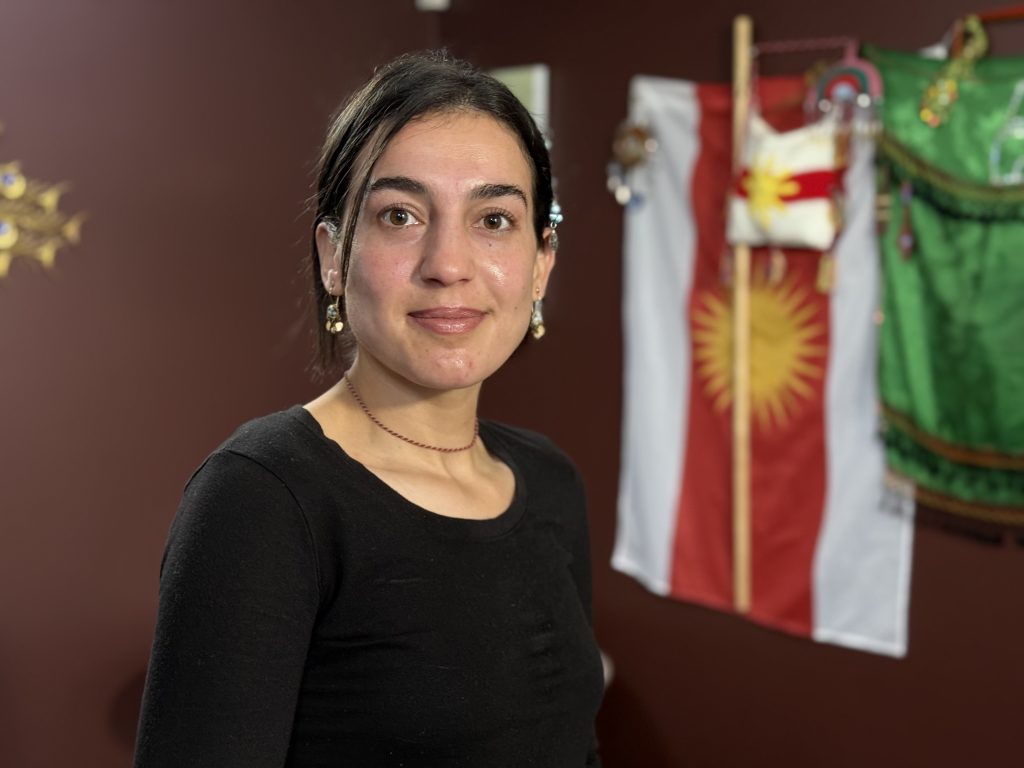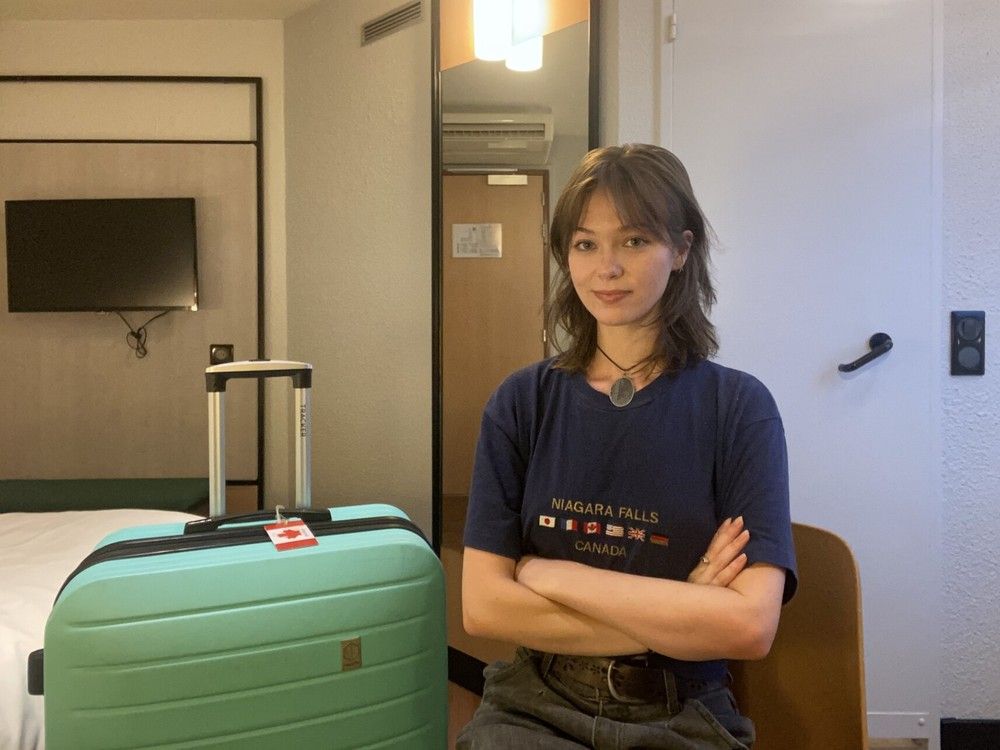When the Elias family fled their ancestral home in Iraq 14 years ago, they were one of the families who escaped what the United Nations named a genocide of 400,000 Yazidi people, perpetrated by ISIS.
Part of the family made it to Winnipeg as refugees, but some of their family members – the ones who survived – are still in Turkey. Now they’re pleading with the Canadian government to reunite them, before more are killed overseas.
“On August 3, 2014, ISIS swept through Yazidi villages and towns,” said Hasso Elias, 30. “It was one of the hardest days of my life. That led to hundreds of thousands of Yazidis to flee their homes, mostly by foot, and that was the case for my family and I.
“Hundreds of people on the streets, many of them died of starvation and dehydration during the first days of the genocide.”
“They were taking girls,” added his sister Nora Elias, 29. “They were killing men and women and children.
Hasso, who spoke to CityNews through an English-Kumanji translator, and his family fled to Syria for a few days, then to a Yazidi refugee camp in Turkey, where they spent about three years.
“It was like a prison,” Hasso said of the conditions in Turkey. “We weren’t allowed to leave. There was no education, no employment opportunities, with nothing to do.”
Yazidis are a religious minority based mainly in northern Iraq. They were persecuted by the Islamic State in Iraq and Syria. In 2016, two years after ISIS began sweeping through villages in Iraq, a United Nations report declared the slaughter, sexual slavery, indoctrination and other crimes committed against the Yazidi amounted to genocide.
“The life was so hard in Iraq,” Nora said. “We had no chance, not in education. Not in a good life there. Not even working, especially for girls.”
The Eliases were among 1,200 Yazidi families the government brought to Canada via the United Nations as part of its resettlement commitment plan in 2017 for ISIS survivors.
But most never made it that far.
Hasso’s extended family was kept in an ISIS refugee camp, where his uncle was killed in 2015. His aunt, her four kids and her late husband’s niece fled to Turkey in 2020, where they’ve been living ever since – first in a refugee camp that was eventually liberated, and now in an abandoned building.

“(ISIS) destroyed entire villages,” explained Nafiya Naso with the Canadian Yazidi Association and Operation Ezra, a Winnipeg organization that works to privately sponsor Yazidi refugee families. “Here we are 11 years later, we still have hundreds of thousands of Yazidi refugees in camps, living in camps in the Kurdistan region in Iraq, in Syria and in Turkey. These people have nowhere else to go. Their homes have been destroyed.
“When they first fled, Yazidis were placed in refugee camps and mixed with other refugee groups. Shortly after, the people that were running the camps realized Yazidis were being persecuted in the refugee camps by other refugee groups. They had to get all the Yazidis out of these camps and placed them in segregated camps, Yazidi-only camps for their safety. That was the beginning of the genocide in early days of August in 2014.”
Family’s medical interviews this week: IRCC
Hasso and Nora say they receive calls every day from their aunt’s family in Turkey, begging for an update on their private sponsor applications, which were filed five years ago.
“It is very, very hard for us and for our extended family in Turkey and especially for our family because their safety is at risk, right now,” Hasso said.
“If the Canadian government doesn’t act, we fear that the worst-case scenario is gonna be them returning to a war zone.”
An update finally came Monday, after CityNews first aired its broadcast story, with Hasso saying Immigration, Refugees and Citizenship Canada (IRCC) called him at 3 a.m. for an interview and an update on the family’s applications, which are seeing the next step in the immigration process.
Hasso’s extended family is currently travelling to Ankara for in-person interviews and medical assessments, with Naso saying that’s the last step before a visa can be approved.
“They’re waiting and they hope that it works very soon for them,” said Nora.
“We are trying to find them a home actually, a safe place, like us.
“We wanna have a better life together and do whatever that we couldn’t do back home. … Maybe going to school together. Working. Going out together, park, having good dinner. Good meal together.”

Naso, who provided translator services – alongside her sister Jamileh – for Hasso during CityNews’ interview, is urging Ottawa to expedite the application and reunite the family.
“We simply can’t get an answer as to why it’s taking long or approximately when they’ll be able to come and reunite with their families,” she said.
“We’re simply running out of time here.”
She says the family’s safety is at risk in Turkey.
“The family fled Iraq for their safety, so if the Turkish government decides to send them to Iraq, they have nowhere to go. It’s not safe for them,” Naso said. “Our plea here is that we’ve submitted an application for this family. We have all the funds in place to support the family for the first 12 months that they arrive. We have a beautiful, fully furnished home here where they’ll be living with their extended family members. We have an army of volunteers ready to welcome them. We have employers reach out and say, we’re willing to train them and hire them once they arrive.
“But unfortunately, we don’t know when we’ll be able to get them here.”

IRCC applications are first come, first served
Prior to Hasso getting that phone call Monday, IRCC told CityNews it couldn’t comment on individual cases due to safety and privacy concerns. But it said in an email statement the family in Turkey could go to the United Nations High Commissioner for Refugees (UNHCR) for an assessment.
“It is the mandate of the UNHCR or other designated referral agency to provide protection in the country of refuge,” the IRCC said in a statement. “Should the UNHCR find the applicant to be in need of urgent protection, it will advise the overseas IRCC office.”
The IRCC also explained why it processes applications on a first-come, first-served basis, even when it acknowledged there were safety and security risks associated with vulnerable groups such as the Yazidis.
“IRCC recognises the challenges faced by the Yazidi population and have taken concrete steps to support the most vulnerable including through a dedicated pathway and through the regular government-assisted refugee and privately-sponsored refugee pathways,” the IRCC said.
“Migration officers are apprised of in-country conditions and are best placed to assess whether there is a threat to clients or potential impacts on their protection needs. When needed, officers have the ability, on a discretionary basis, to prioritize processing cases in times of urgency, while respecting the Department’s Levels space and other pathway commitments.”
Although immigration is a federal issue, the Manitoba government says the family’s local MLA will be contacting Canada’s immigration minister to advocate for urgent processing of the sponsorship applications, so the family can be reunited.
“Manitoba has a proud history of welcoming those fleeing violence and humanitarian crises to our province. Our government shares the serious concerns for the safety of Yazidi families in Turkey, who are facing threats and persecution,” said a Manitoba government spokesperson.
Those words have Hasso and Nora dreaming of a day when they can embrace their loved ones face to face.
“One of the first things I think about their arrival is to welcome them at the airport,” Hasso said. “And hug them and to let them know that they are in a safe and peaceful place now. And to bring them into this beautiful home, this is where they’ll be living, and just for them to reconnect and build on their lives.”
“We will be so happy,” added Nora.



